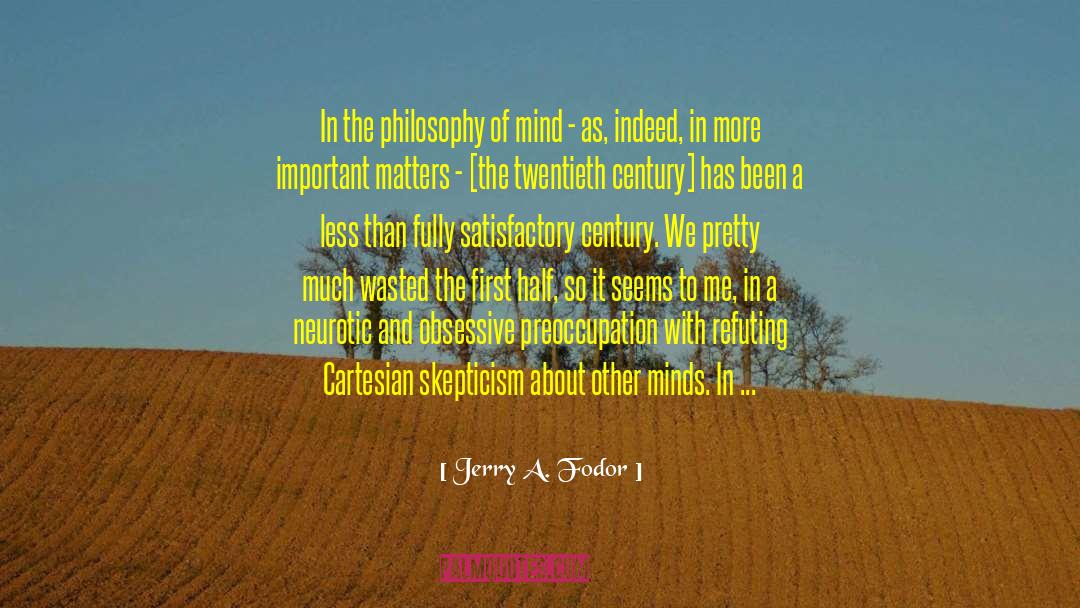Quotes About The Semantic Web
Enjoy collection of 46 The Semantic Web quotes. Download and share images of famous quotes about The Semantic Web. Righ click to see and save pictures of The Semantic Web quotes that you can use as your wallpaper for free.
In truth search can no more be considered independent of the Web than the Web can work without search. This symbiotic relationship brings forth all sorts of issues because it becomes part of a traditional push and pull where the Web, represented by those who actively work in it, wants to push all the wrong things, while search wants to pull in everything. ~ David Amerland
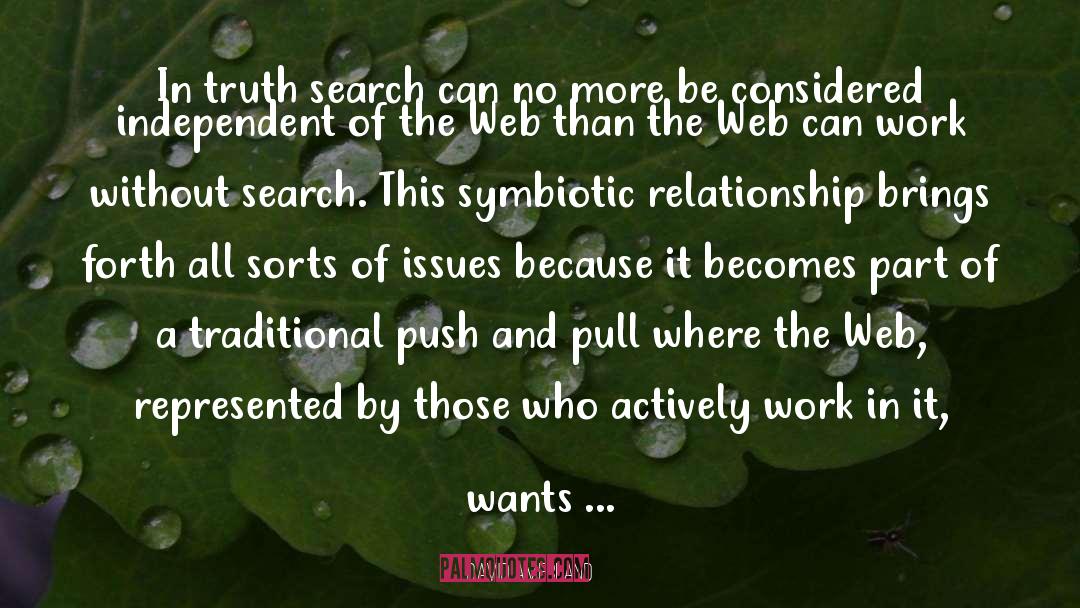
Web pages are designed for people. For the Semantic Web, we need to look at existing databases. ~ Tim Berners-Lee
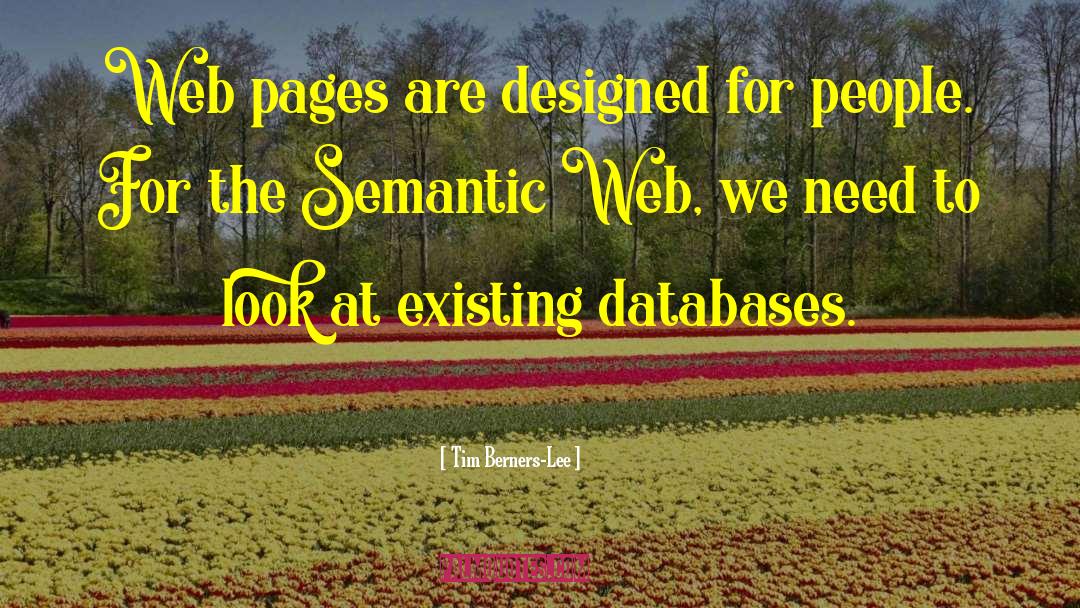
The syntactic component of a grammar must specify, for each sentence, a deep structure that determines its semantic interpretationand a surface structure that determines its phonetic interpretation. ~ Noam Chomsky
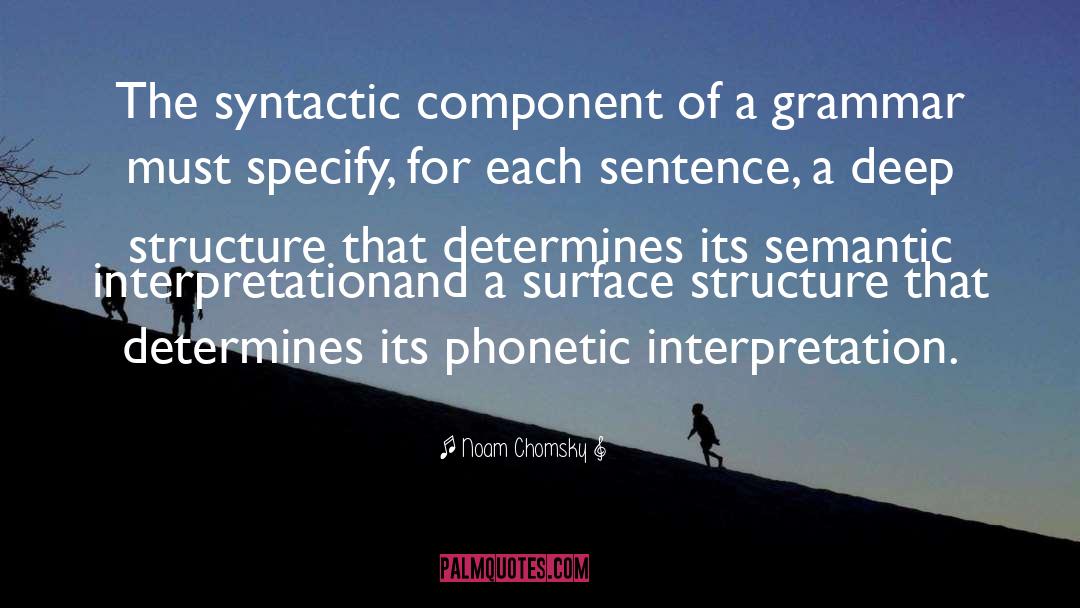
Everything you see in the world around you is content of some kind. The clothes you wear, the songs you sing, the ads you watch, the food you buy, the tunes you hum and the memes you share. Everything is a signal that sends a message. ~ David Amerland
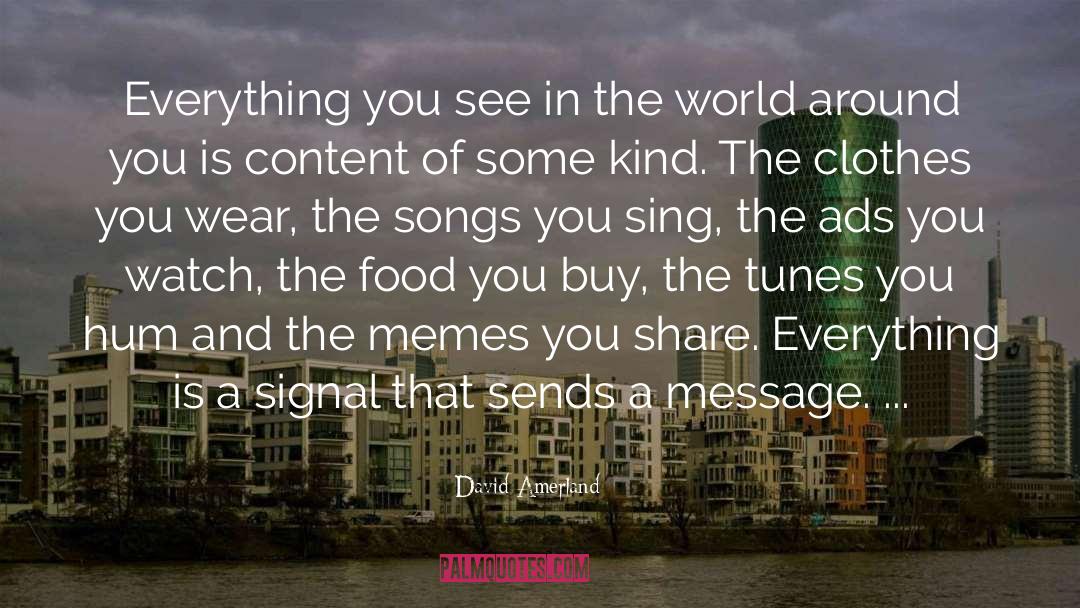
The content you create and then share is part of your digital identity. It helps those who consume it to understand who you are, why you do the things you do and what values you stand for. As a result content is the primary means through which you establish your online identity, create your reputation and generate the all essential sense of trust without which nothing else can take place. ~ David Amerland
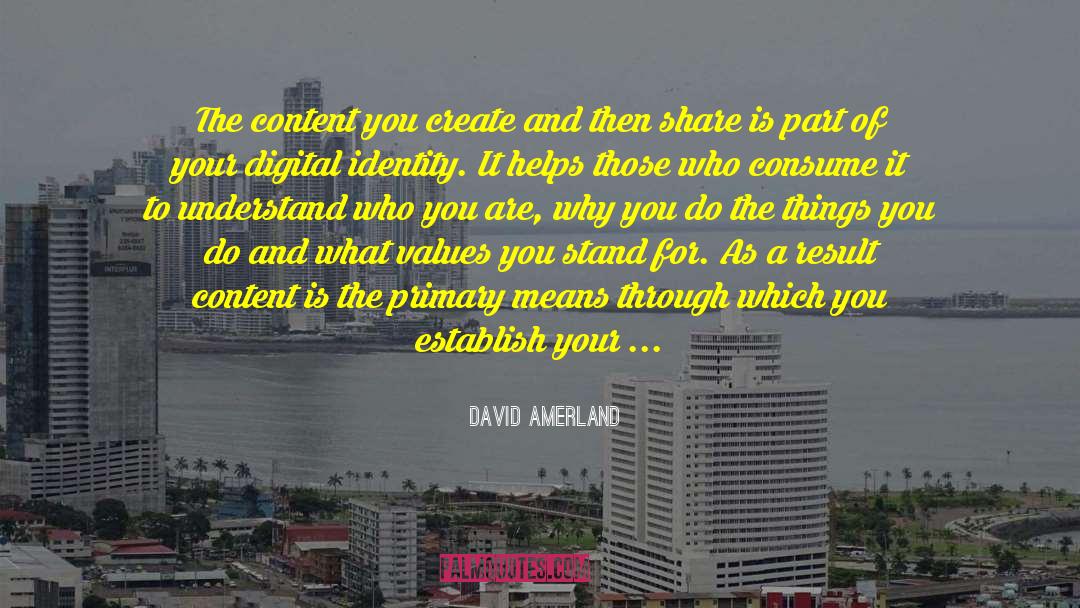
Where is the absolution of religion now? Morality is not negotiable, Hensley. Unleashing a war machine in order to end a war? An absurd Olympics of semantic excuses. Ludicrous. ~ Hazel Woods

What I am trying to do when I use symbols is to awaken in your unconscious some reaction. I am very conscious of what I am using because symbols can be very dangerous. When we use normal language we can defend ourselves because our society is a linguistic society, a semantic society. But when you start to speak, not with words, but only with images, the people cannot defend themselves. ~ Alejandro Jodorowsky
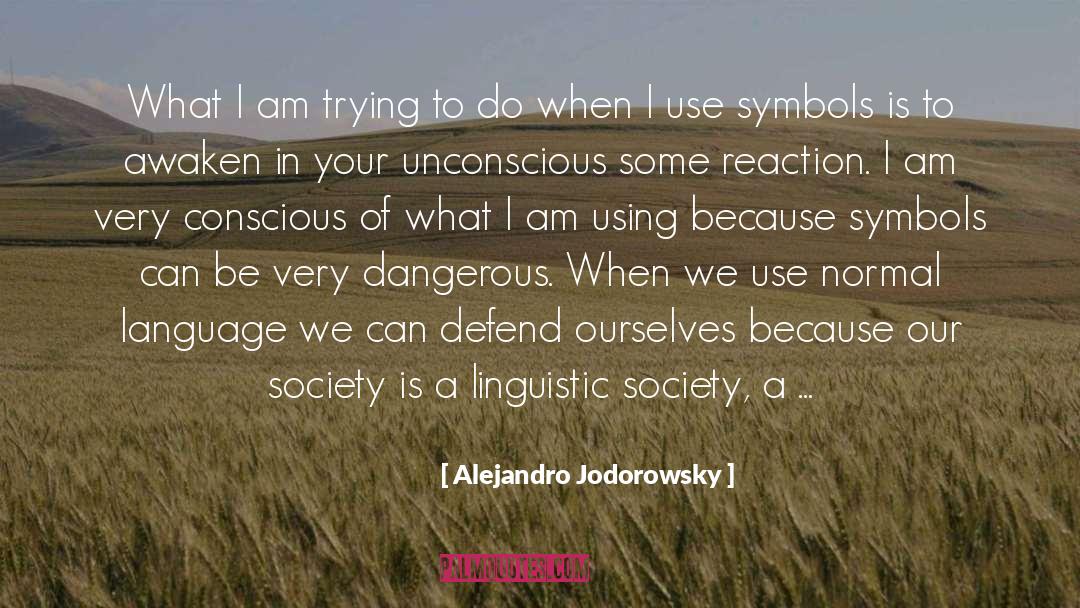
In Paul Friedrich's book Proto-Indo-European Trees he identifies the "semantic primitives" of the Indo-European tribe of languages through a group of words that have not changed much through twelve thousand years - and those are tree names: especially birch, willow, adler, elm, ash, apple and beech (bher, wyt, alysos, ulmo, os, abul, bhago). Seed syllables, bija, of the life of the west. ~ Gary Snyder
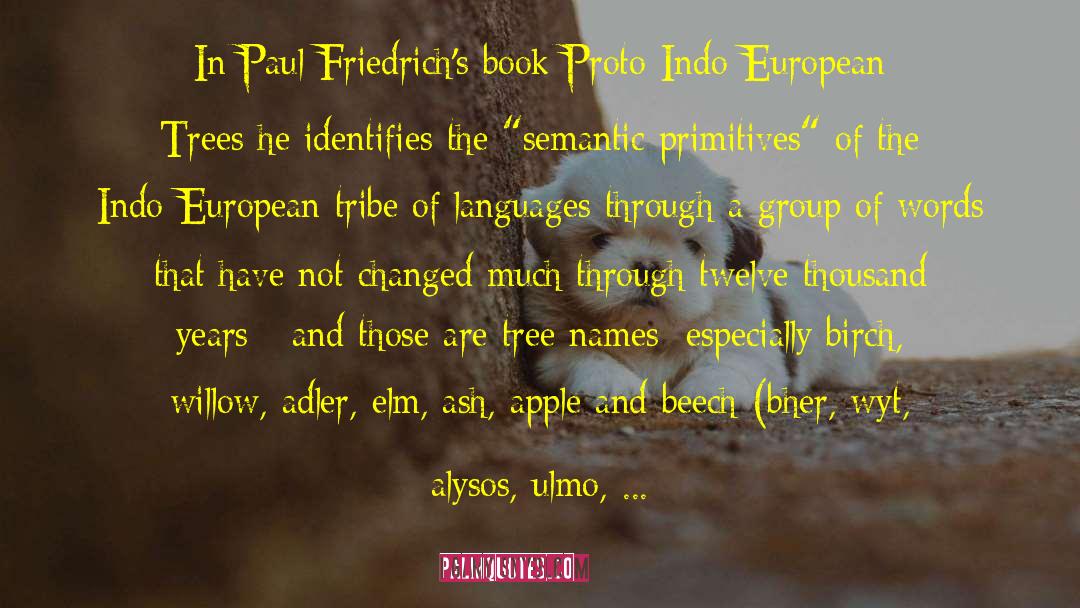
A crassly arbitrary method can be avoided only when it is accepted that etymological statements are historical and not authoritative and that semantic statements must be based on the social linguistic consciousness related to usage. ~ James Barr
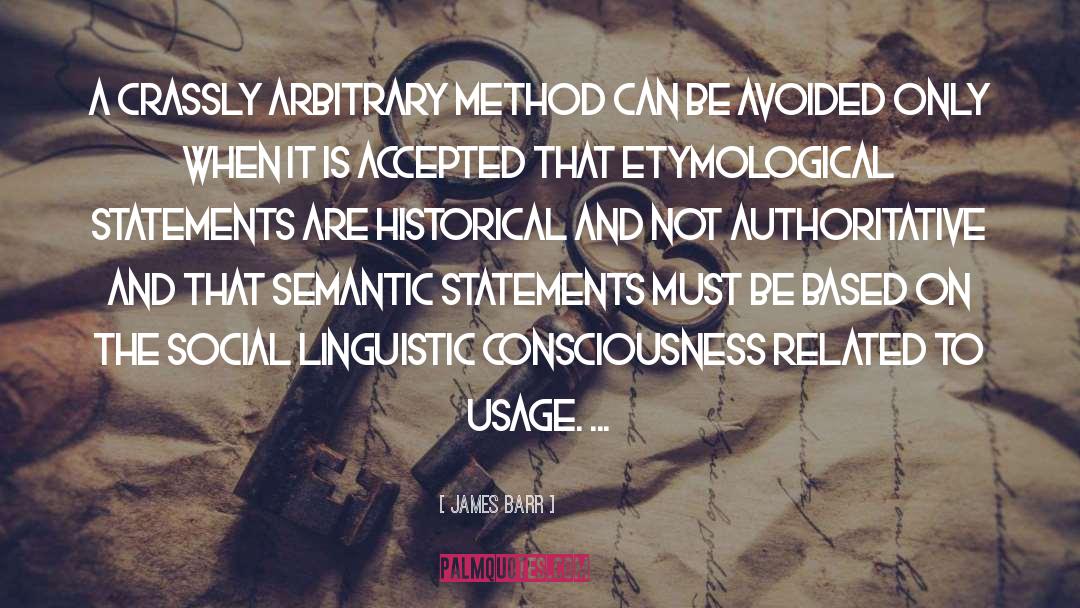
The text is not inserted into a genetic process in which it is understood as emerging from this or that prior moment of form or style; nor is it 'extrinsically' related to some ground or context which is at least initially given as something lying beyond it. Rather, the data of the work are interrogated in terms of their formal and logical and, most particularly, their semantic conditions of possibility. ~ Fredric Jameson
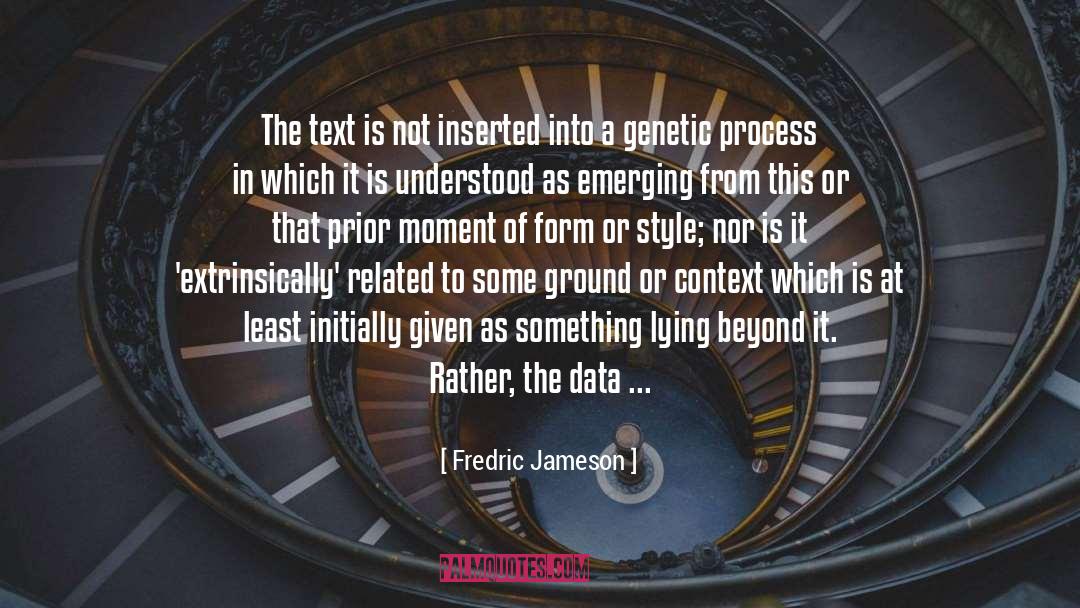
Storytelling began as a way for humans to relay information, from where to find food sources to the benefits of familial bonding, because fictional stories were the easiest way to memorize and communicate a complete set of information. We remember information best when it is delivered in the form of a plot, which is called 'semantic memory.' Stories still serve a definitive purpose and the stronger the purpose, the clearer the story.
Fire Up Your Writing Brain ~ Susan Reynolds
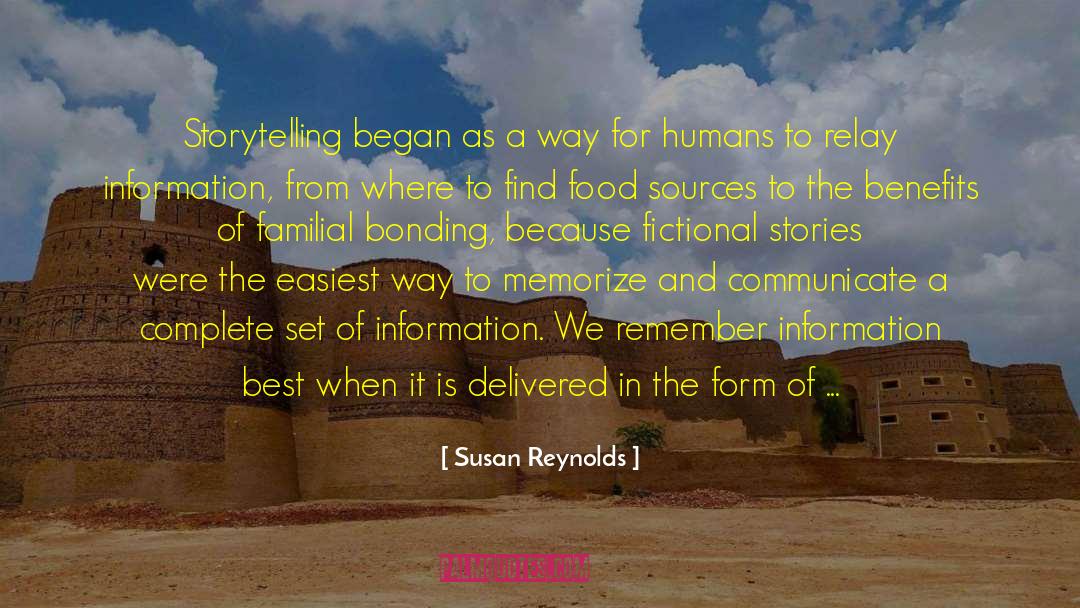
For my present purpose I require a word which shall embrace both the Sub-Creative Art in itself, and a quality of strangeness and wonder in the Expression, derived from the Image: a quality essential to fairy-story. I propose, therefore, to arrogate to myself the powers of Humpty-Dumpty, and to use Fantasy for this purpose: in a sense, that is, which combines with its older and higher use as an equivalent of Imagination the derived notions of 'unreality' (that is, of unlikeness to the Primary World), of freedom from the dominion of 'observed fact,' in short of the fantastic. I am thus not only aware but glad of the etymological and semantic connexions of fantasy with fantastic: with images of things that are not only 'not actually present,' but which are indeed not to be found in our primary world at all, or are generally believed not to be found there. But while admitting that, I do not assent to the depreciative tone. That the images are of things not in the primary world (if that indeed is possible) is, I think, not a lower but a higher form of Art, indeed the most nearly pure form, and so (when achieved) the most Potent.
Fantasy, of course, starts out with an advantage: arresting strangeness. But that advantage has been turned against it, and has contributed to its disrepute. Many people dislike being 'arrested.' They dislike any meddling with the Primary World, or such small glimpses of it as are familiar to them. They, therefore, stupidly and even maliciously ~ J.R.R. Tolkien
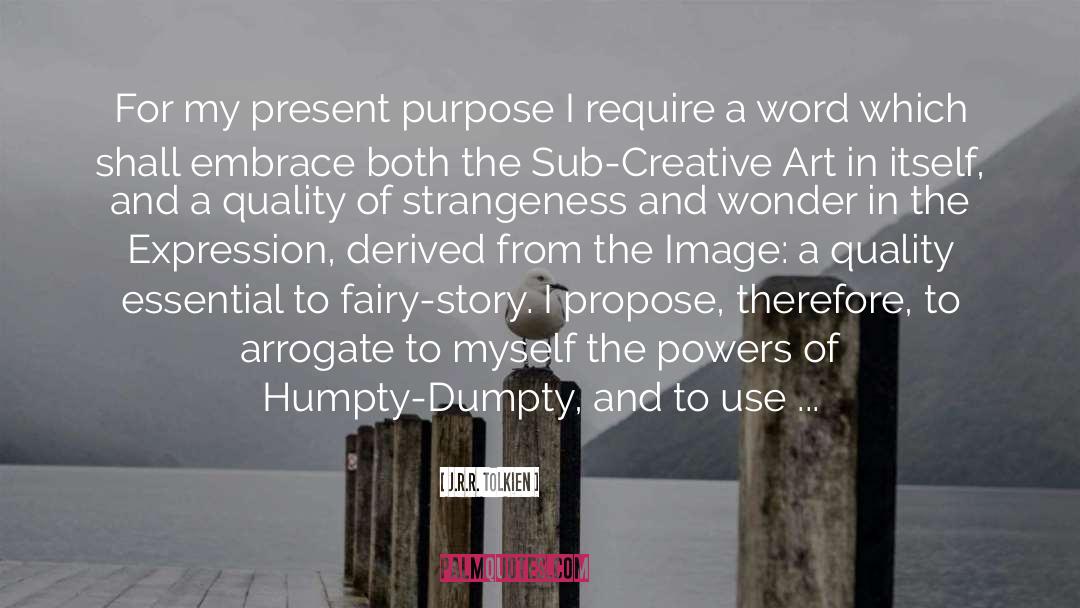
As words are not the things we speak about, and structure is the only link between them, structure becomes the only content of knowledge. If we gamble on verbal structures that have no observable empirical structures, such gambling can never give us any structural information about the world. Therefore such verbal structures are structurally obsolete, and if we believe in them, they induce delusions or other semantic disturbances. ~ Alfred Korzybski
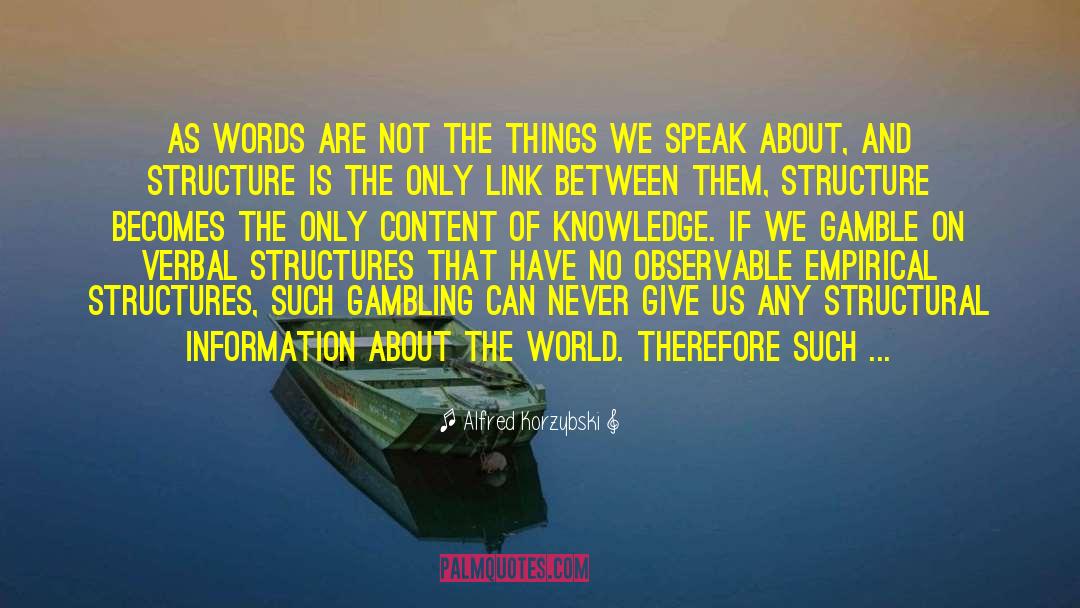
Make interfaces programmatic rather than semantic when possible. Each interface consists of a programmatic part and a semantic part. The programmatic part consists of the data types and other attributes of the interface that can be enforced by the compiler. The semantic part of the interface consists of the assumptions about how the interface will be used, which cannot be enforced by the compiler. The semantic interface includes considerations such as "RoutineA must be called before RoutineB" or "RoutineA will crash if dataMember1 isn't initialized before it's passed to RoutineA." The semantic interface should be documented in comments, but try to keep interfaces minimally dependent on documentation. Any aspect of an interface that can't be enforced by the compiler is an aspect that's likely to be misused. Look for ways to convert semantic interface elements to programmatic interface elements by using Asserts or other techniques. ~ Steve McConnell
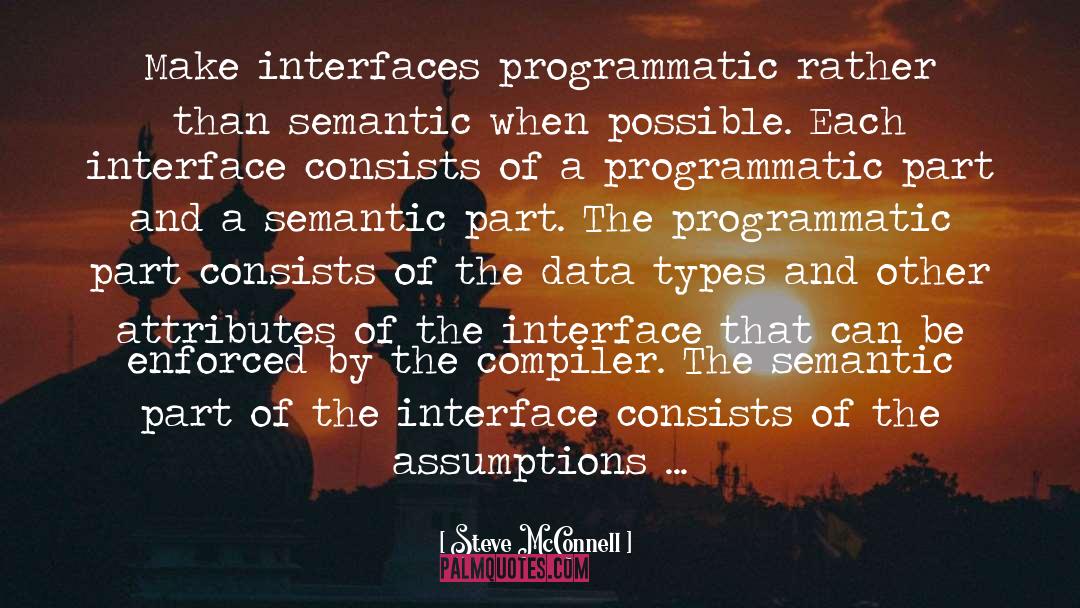
The remoter poetry in particular was replete with effects, an effect being something hypnotic we cannot quite understand, whiteness of moon and wave related to the setting of Time in a manner "too subtle for the intellect." And all over Europe, by the late 19th century, poets had decided that effects were intrinsic to poetry, and were aiming at them by deliberate process. By the end of the century, in France, whole poems have been made "too subtle for the intellect," held together, as effects are, by the extra-semantic affinities of their words. Picking up a name that was once thrown around as their authors, we have learned to call them "Symbolist" poems. In the Symbolist poem the Romantic effect has become a structural principle, and we may say that Symbolism is scientific Romanticism, thus an effort to anticipate the work of time by aiming directly at the kind of existence a poem may have when a thousand years have deprived it of its dandelions and its mythologies, an existence purely linguistic, determined by the molecular bonds of half-understood words. ~ Hugh Kenner
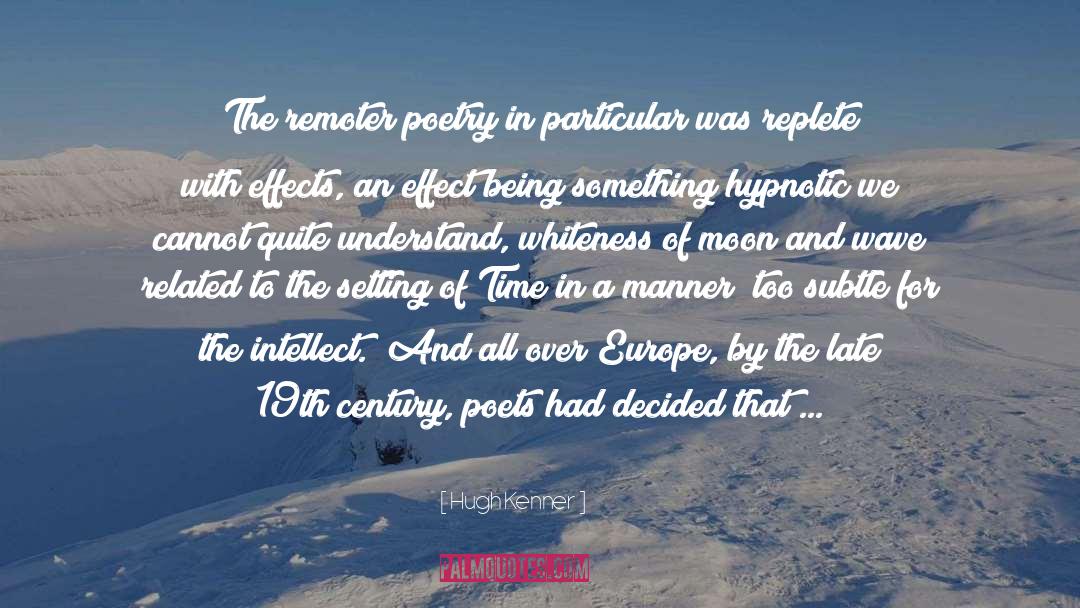
As a result of the work done by all these stratifying force in language, there are no "neutral" words and forms - words and forms that can belong to "no one"; language has been completely taken over, shot through with intentions and accents. For any individual consciousness living in it, language is not an abstract system of normative forms, but rather a concrete heteroglot conception of the world. All words have the "taste" of a profession, a genre, a tendency, a party, a particular work, a particular person, a generation, an age group, the day and hour. Each word tastes of the context and contexts in which it has lived it socially charged life; all words and forms are populated by intentions. Contextual overtones (generic, tendentious, individualistic) are inevitable in the word.
As a living, socio-ideological concrete thing, as heteroglot opinion, language, for the individual consciousness, lies on the borderline between oneself and the other. The word in language is half someone else's. It becomes "one's own" only when the speaker populates it with his own intention, his own accent, when he appropriates the word, adapting it to his own semantic and expressive intention. Prior to this moment of appropriation, the word does not exist in a neutral and impersonal language (it is not, after all, out of a dictionary that the speaker gets his words!), but rather it exists in other people's mouths, in other people's contexts, serving other people's intentions: it is f ~ Mikhail Bakhtin
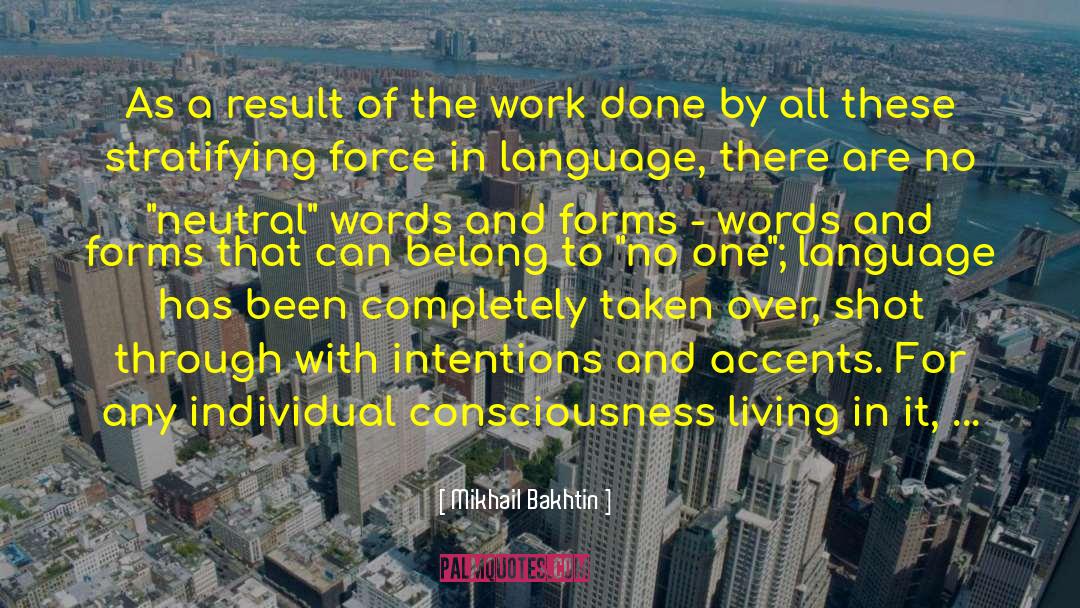
L2 Learners are (55%) affected by their target language and (35%) by their mother tongue. There are both the target language and Morphological Translation Equivalence that pair affixes of the two languages share with each other which enhance the Semantic Transparency of affixes ~ Endri Shqerra
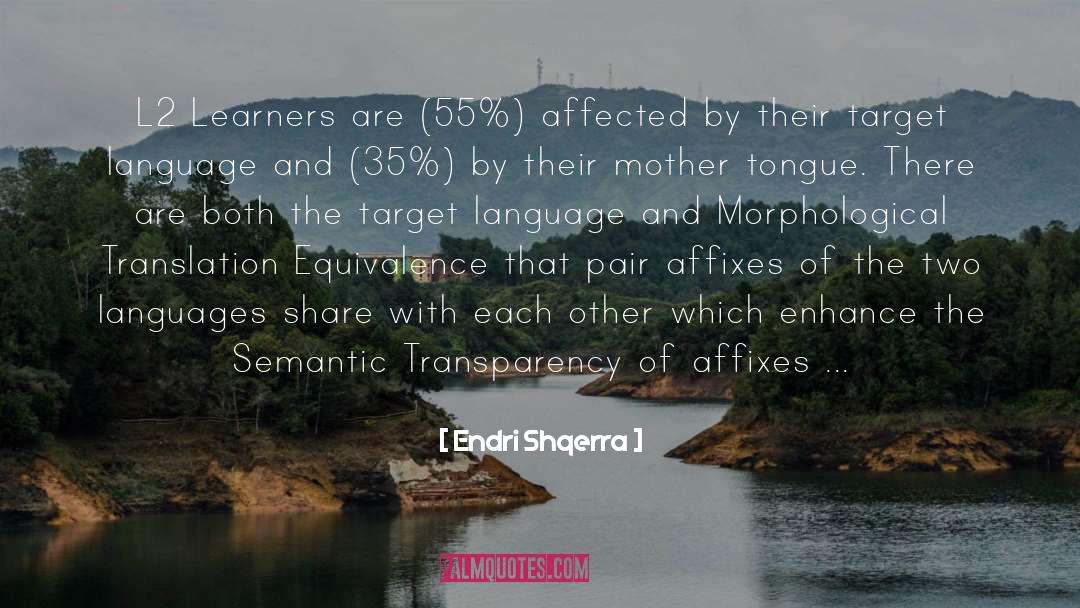
Never underestimate the ridiculous things that have been done in the name of religious-semantic obscurity. ~ Kate Griffin
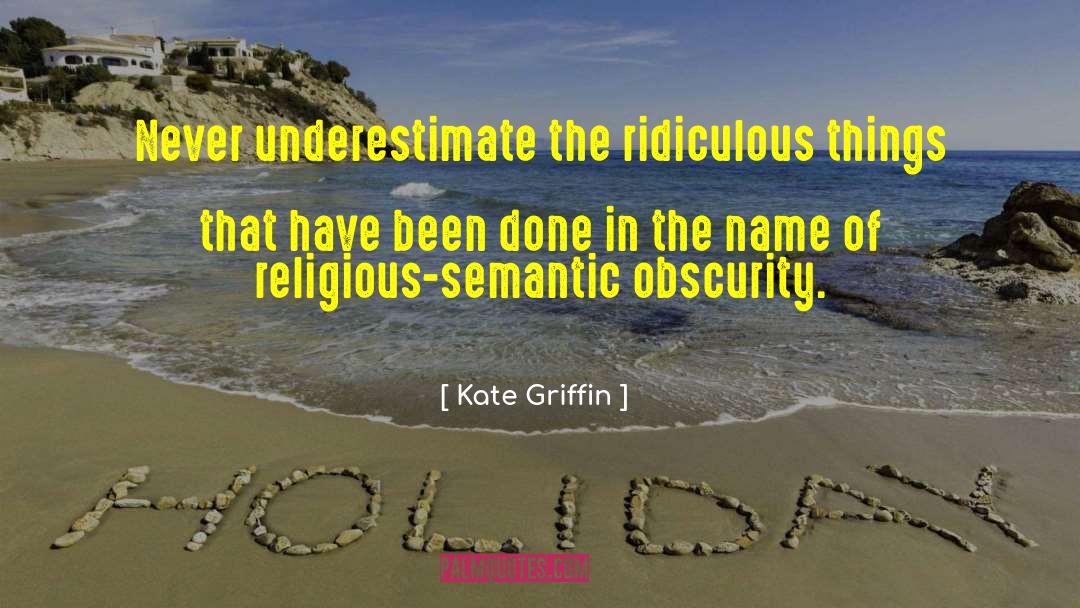
You can't see the semantic wood for the syntactic trees. ~ Christopher Strachey

It is not necessarily ominous that the formal family dinner is declining in many households or becoming limited to special occasions. We might be better off if we could separate food as nourishment and pleasure from food as the currency of care that leaves so many woman laboring long hours to prove affection in that semantic muddle called nurturance. ~ Mary Catherine Bateson
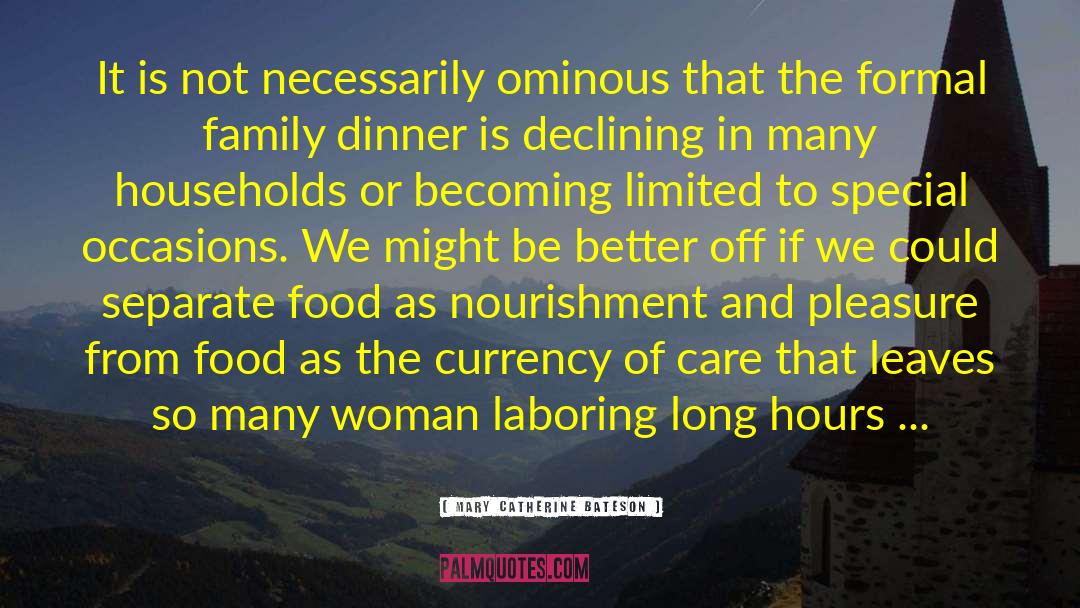
The same ingenious application of slogans, coined by others and tried out before, was apparent in the Nazis' treatment of other relevant issues. When public attention was equally focused on nationalism on the one hand and socialism on the other, when the two were thought to be incompatible and actually constituted the ideological watershed between the Right and the Left, the "National Socialist German Workers' Party" (Nazi) offered a synthesis supposed to lead to national unity, a semantic solution whose double trademark of "German" and "Worker" connected the nationalism of the Right with the internationalism of the Left. The very name of the Nazi movement stole the political contents of all other parties and pretended implicitly to incorporate them all. Combinations of supposedly antagonistic political doctrines (national-socialist, christian-social, etc.) had been tried, and successfully, before; but the Nazis realized their own combination in such a way that the whole struggle in Parliament between the socialists and the nationalists, between those who pretended to be workers first of all and those who were Germans first, appeared as a sham designed to hide ulterior sinister motives - for was not a member of the Nazi movement all these things at once? ~ Hannah Arendt
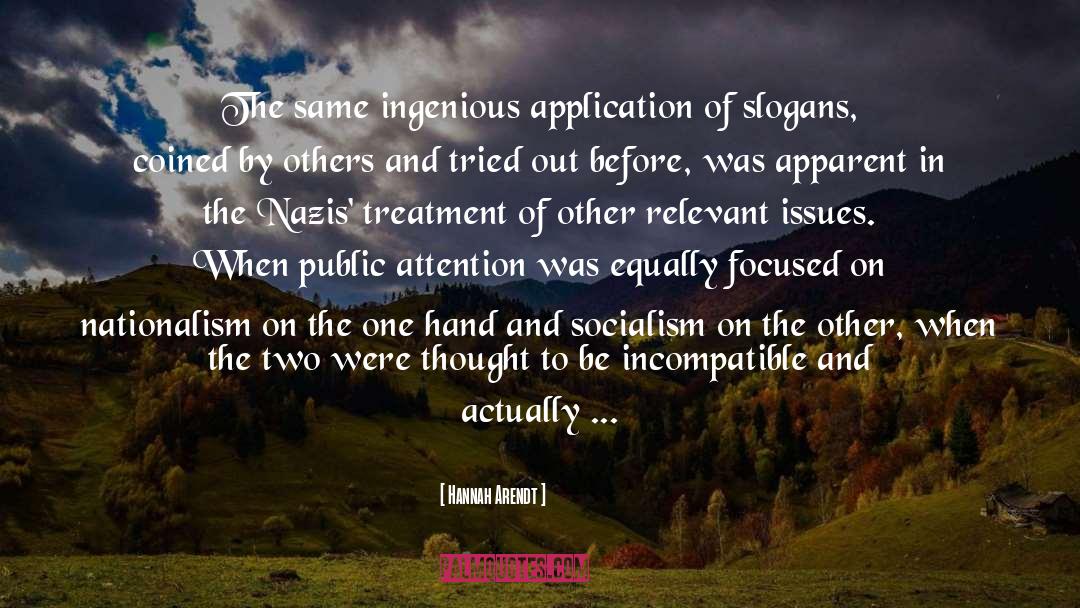
The connectivity of the cloud and the prevalence of tablets and smartphones have eroded the traditional online/offline divide. Within a short time we will most probably stop thinking of it as 'online.' We will simply be connected, all the time, everywhere, and the online world will be notable only by its absence when that connection breaks. ~ David Amerland
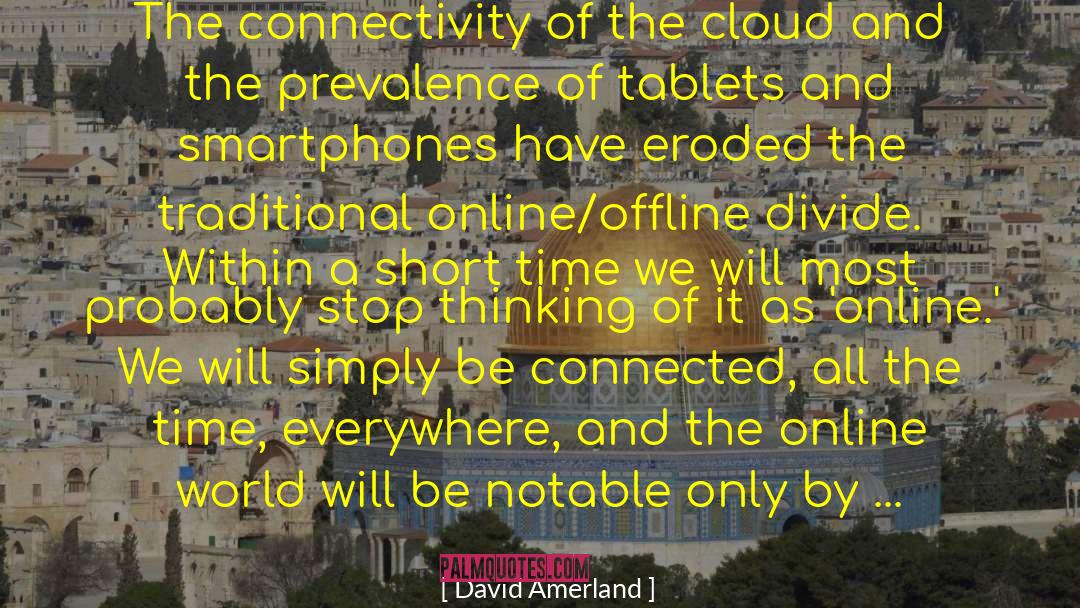
Writers that pretend to be in the throes of some kind of genius-demon, some kind of possessing spirit that refuses to let them engage with Normal Life are bullshit artists of the highest degree, looking to excuse their antisocial tendencies and bad manners away with a flourish of vocabulary and the semantic waving of hands. ~ Matt Fraction
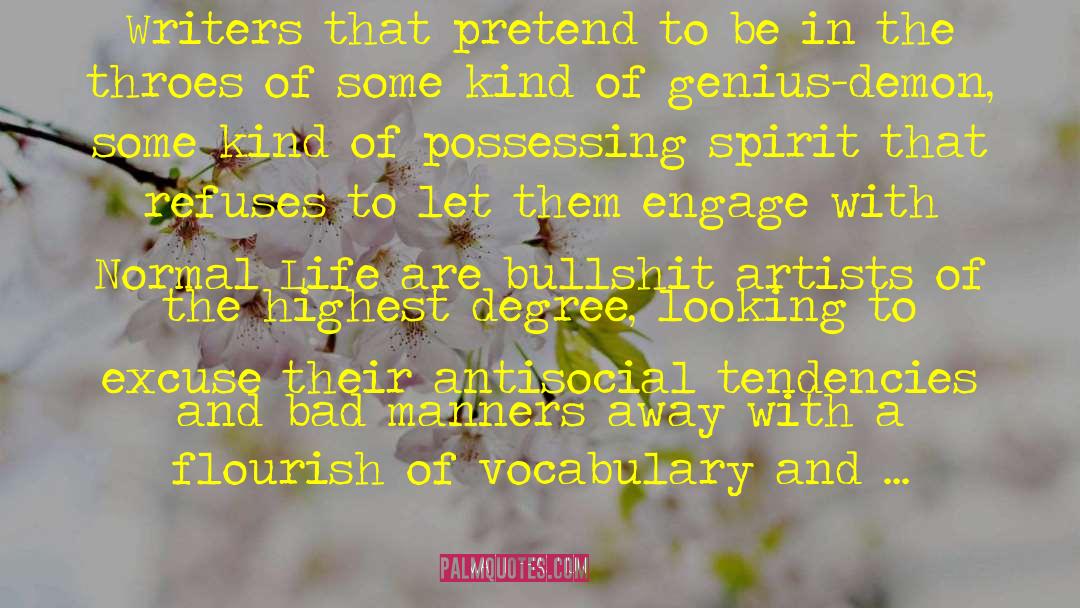
Satan has certainly been the best friend the church has ever had, as he has kept it in business all these years. The false doctrine of Hell and the Devil has allowed the Protestant and Catholic Churches to flourish far too long. Without a devil to point their fingers at, religionists of the right hand path would have nothing with which to threaten their followers. "Satan leads you to temptation"; "Satan is the prince of evil"; "Satan is vicious, cruel, brutal," they warn. "If you give in to the temptations of the devil, you will surely suffer eternal damnation and roast in Hell."
The semantic meaning of Satan is the "adversary" or "opposition" or the "accuser." The very word "devil" comes from the Indian devi which means "god." Satan represents opposition to all religions which serve to frustrate and condemn man for his natural instincts. He has been given an evil role simply because he represents the carnal, earthly, and mundane aspects of life. ~ Anton Szandor LaVey

I detest love lyrics. I think one of the causes of bad mental health in the United States is that people have been raised on 'love lyrics'.
You're a young kid and you hear all those 'love lyrics', right? Your parents aren't telling you the truth about love, and you can't really learn about it in school. You're getting the bulk of your 'behaviour norms' mapped out for you in the lyrics to some dumb fucking love song. It's a subconscious training that creates desire for an imaginary situation which will never exist for you. People who buy into that mythology go through life feeling that they got cheated out of something.
What I think is very cynical about some rock and roll songs -- especially today -- is the way they say: "Let's make love." What the fuck kind of wussy says shit like that in the real world? You ought to be able to say "Let's go fuck", or at least "Let's go fill-in-the-blank" -- but you gotta say "Let's make love" in order to get on the radio. This creates a semantic corruption, by changing the context in which the word 'love' is used in the song.
When they get into drooling about love as a 'romantic concept' -- especially in the lyrics of sensitive singer/songwriter types -- that's another shove in the direction of bad mental health.
Fortunately, lyrics over the last five or six years have gotten to be less and less important, with 'art rock groups' and new wavers specializing in 'nonjudgemental' or 'purposely inconse ~ Frank Zappa
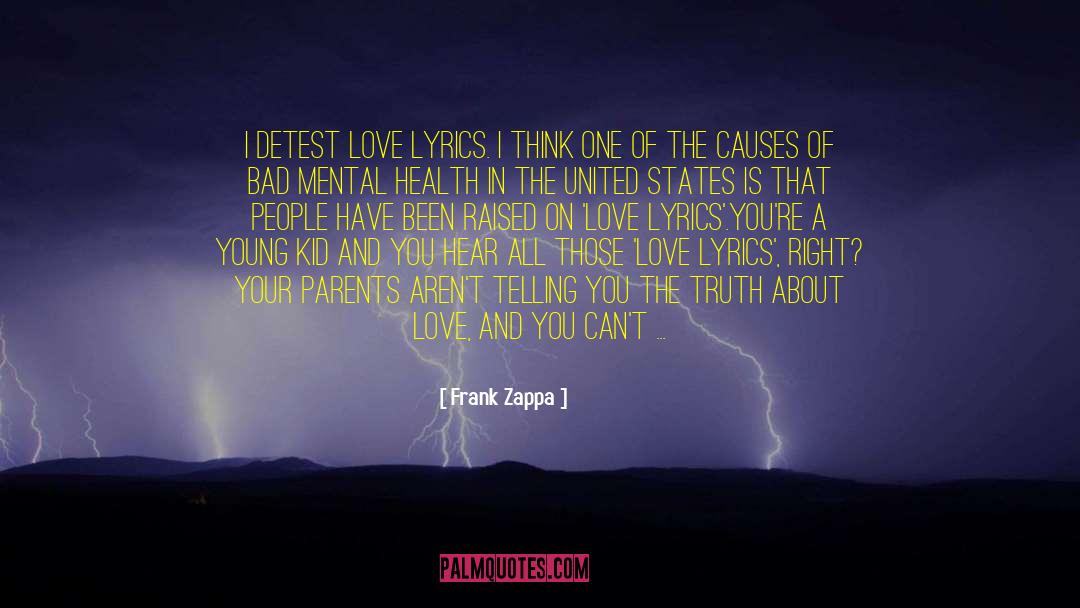
When it comes to measuring the effectiveness of your engagement in the social media environment what counts are: Comments and Sentiment. ~ David Amerland
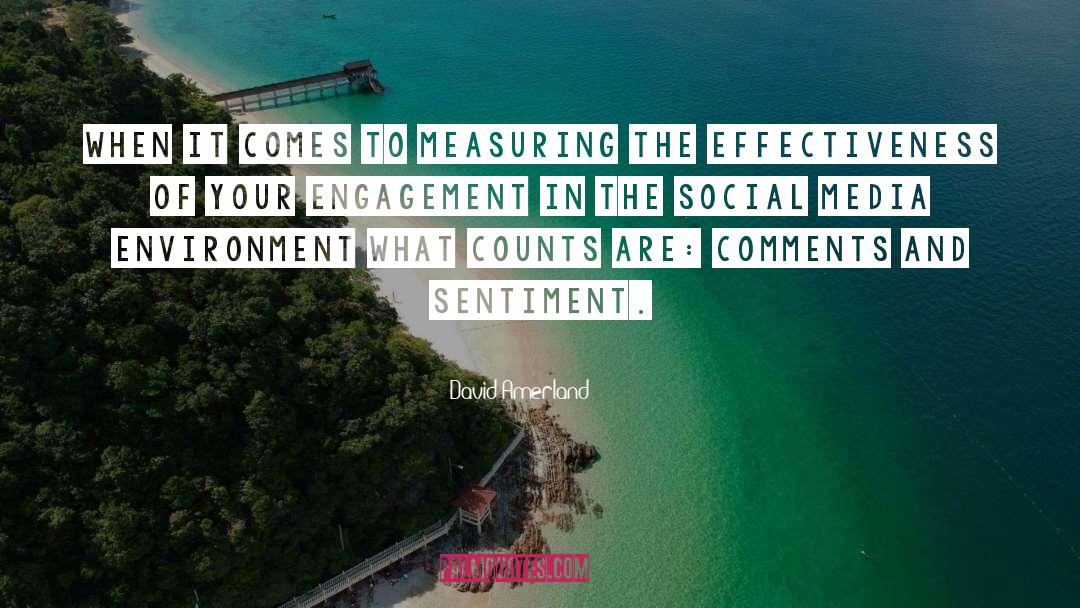
No reflecting reader can deny that the passing off, on an unsuspecting listener, of noises for words, or symbols, must be classified as a fraud, or that we pass to the other fellow contagious semantic disturbances. ~ Alfred Korzybski
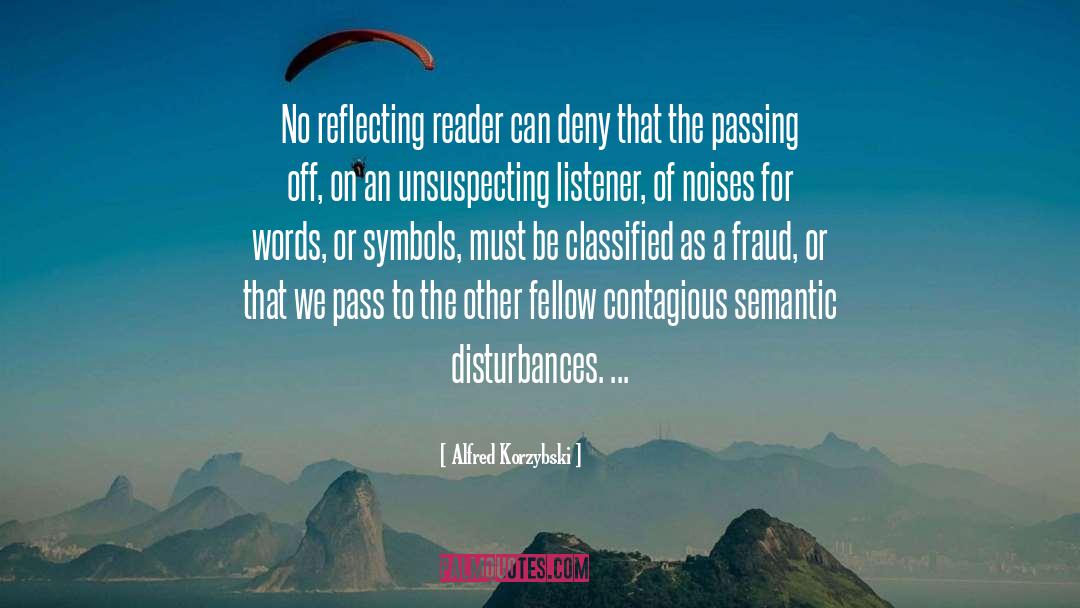
Hence, a generative grammar must be a system of rules that can iterate to generate an indefinitely large number of structures. This system of rules can be analyzed into the three major components of a generative grammar: the syntactic, phonological, and semantic components ... the syntactic component of a grammar must specify, for each sentence, a deep structure that determines its semantic interpretation and a surface structure that determines its phonetic interpretation. The first of these is interpreted by the semantic component; the second, by the phonological component. ~ Noam Chomsky
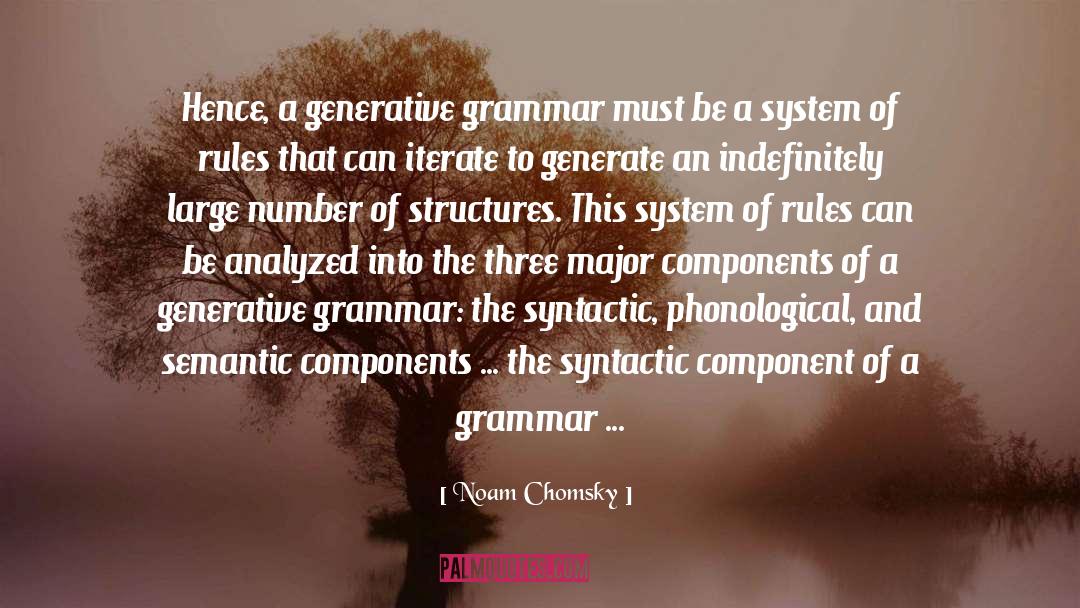
We shall have to stop thinking of technology as something invulnerable that is merely used by humans, and view it as part of a greater cybernetic ecology all around us. The key distinction in an environment is not between 'natural' and 'artificial', but between semantic and dynamic: intention and behaviour. Biology has already drawn these lines, and through us, it will integrate the inanimate with the animate in information systems, until we no longer see a pertinent difference between the two. ~ Mark Burgess
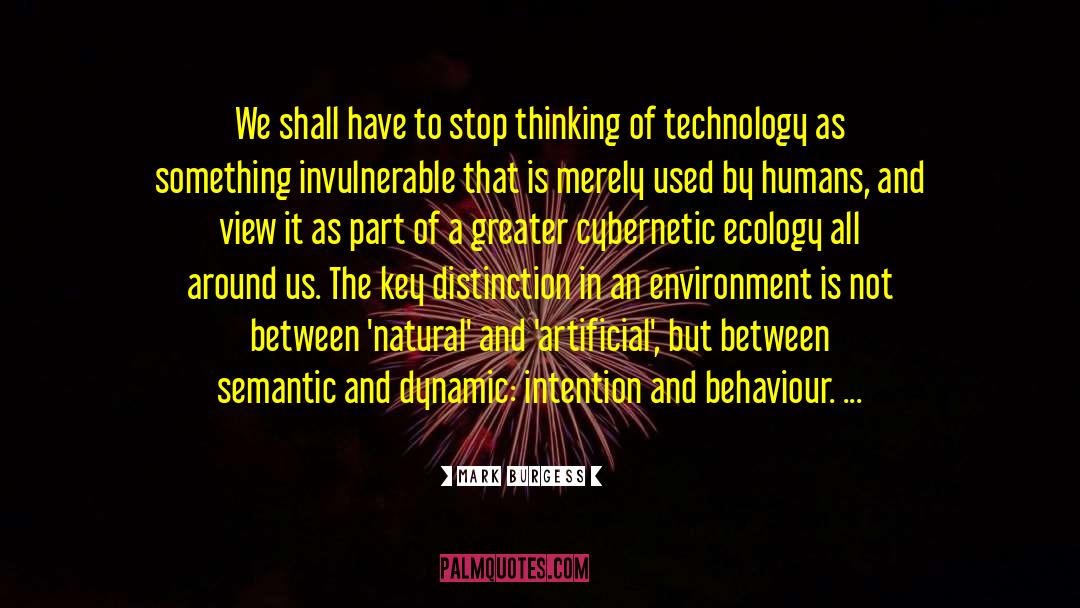
They become liberated spaces that can be occupied. A rich indetermination gives them, by means of a semantic rarefaction, the function of articulating a second, poetic geography on top of the geography of the literal, forbidden or permitted meaning. They insinuate other routes into the functionalist and historical order of movement. Walking follows them: 'I fill this great empty space with a beautiful name. ~ Michel De Certeau

An entity, whether a person or a thing, requires the independent collection of facts about them and a cross-referencing of these facts through their digital footprint. ~ David Amerland
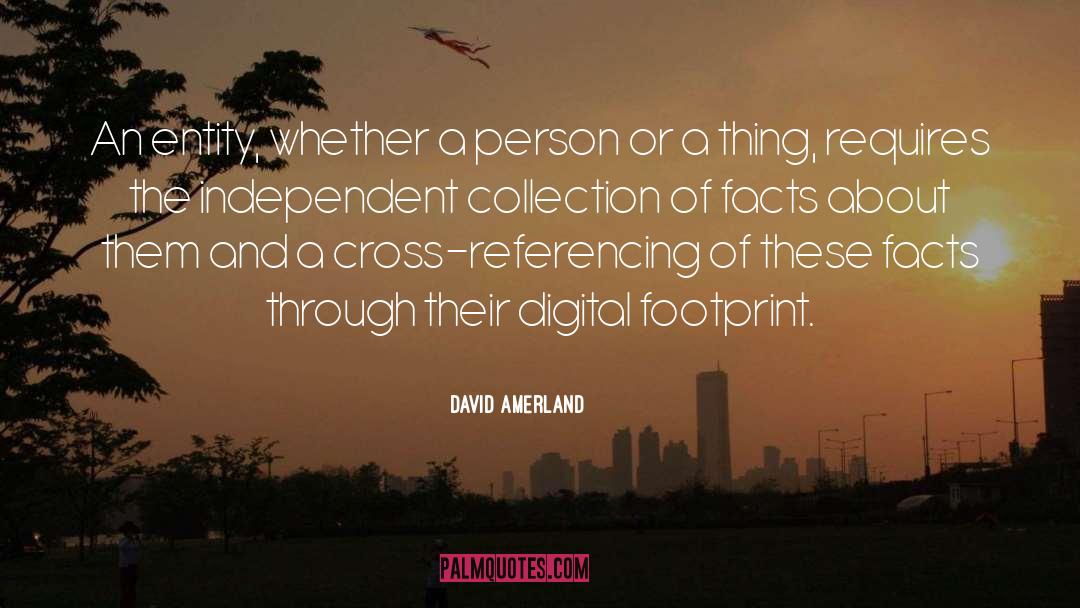
The strategy of semantic ascent is that it carries the discussion into a domain where both parties are better agreed on the objects (viz., words) and on the main terms connecting them. Words, or their inscriptions, unlike points, miles, classes and the rest, are tangible objects of the size so popular in the marketplace, where men of unlike conceptual schemes communicate at their best. The strategy is one of ascending to a common part of two fundamentally disparate conceptual schemes, the better to discuss the disparate foundations. No wonder it helps in philosophy. ~ Willard Van Orman Quine
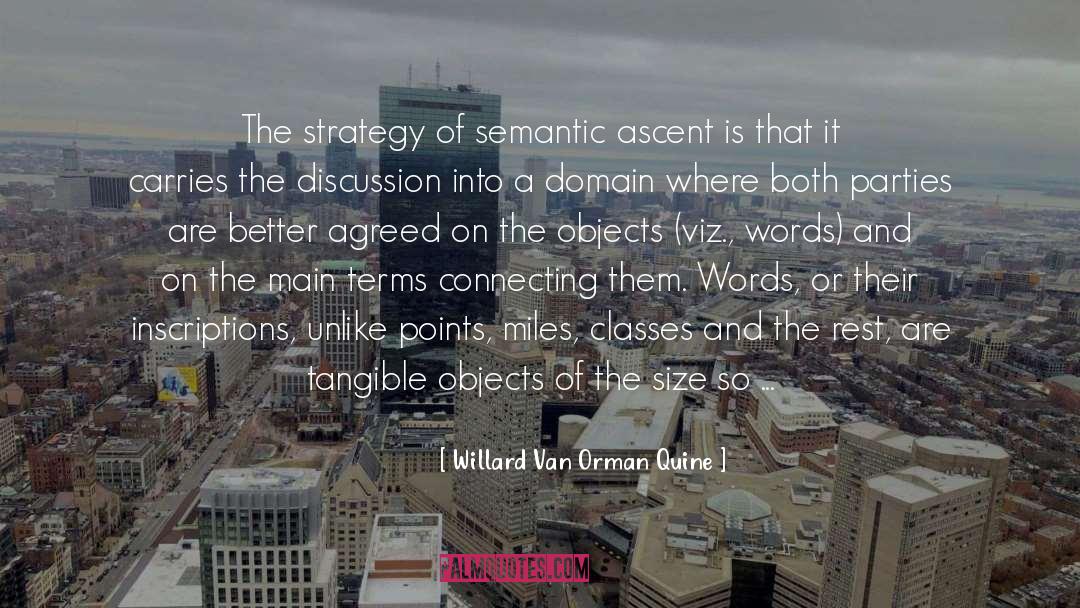
If you write a blog post, you've got something to say; you're not just creating words and synonyms. We'd like the computers to actually pick up on that semantic meaning. ~ Ray Kurzweil
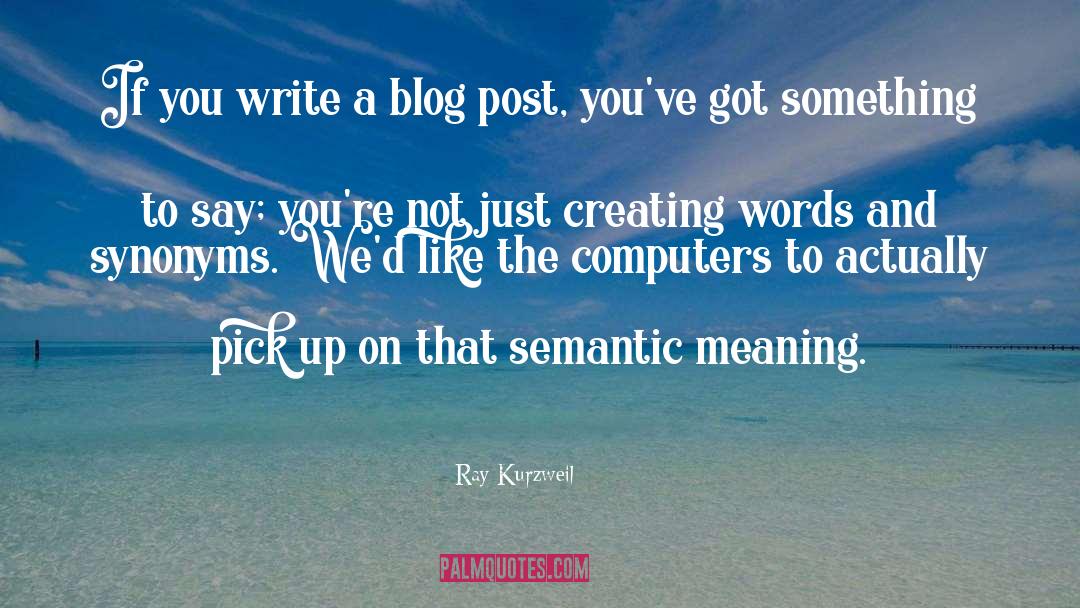
So what happened to the comma in this process? Well, between the 16th century and the present day, it became a kind of scary grammatical sheepdog. As we shall shortly see, the comma has so many jobs as a 'separator' (punctuation marks are traditionally either 'separators' or 'terminators') that it tears about on the hillside of language, endlessly organising words into sensible groups and making them stay put: sorting and dividing; circling and herding; and of course darting off with a peremptory 'woof' to round up any wayward subordinate clause that makes a futile bolt for semantic freedom. Commas, if you don't whistle at them to calm down, are unstoppably enthusiastic at this job. Luckily the trend in the 20th century (starting with H. W. Fowler's The King's English in 1906) has been towards ever-simpler punctuation, with fewer and fewer commas; but take any passage from a non-contemporary writer and you can't help seeing the constituent words as so many defeated sheep that have been successfully corralled with the gate slammed shut by good old Comma the Sheepdog. ~ Lynne Truss
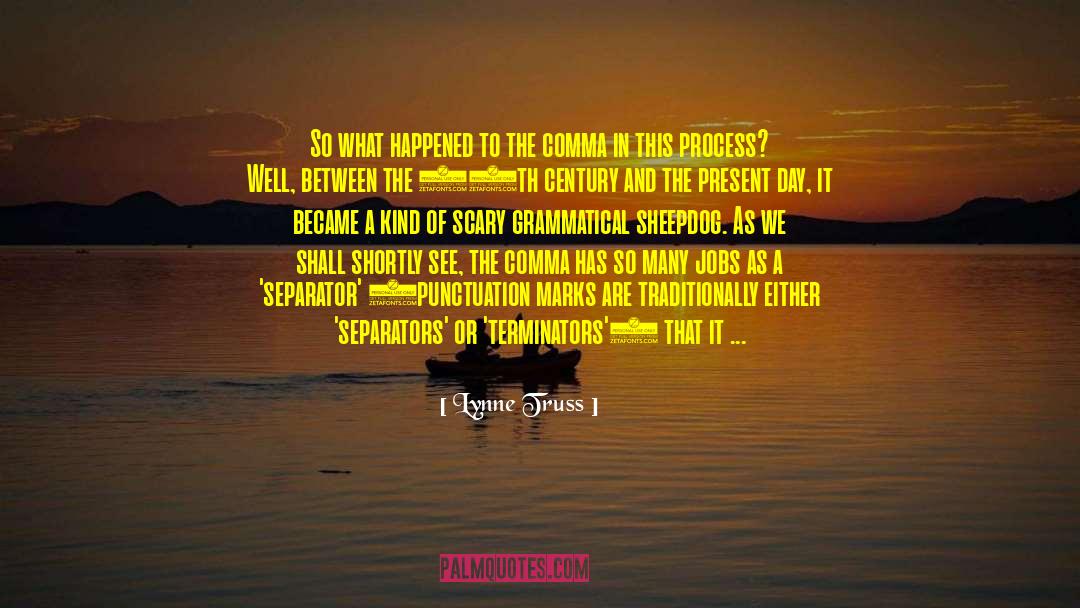
All I knew about the word cyberspace when I coined it, was that it seemed like an effective buzzword. It seemed evocative and essentially meaningless. It was suggestive of something, but had no real semantic meaning, even for me, as I saw it emerge on the page. ~ William Gibson
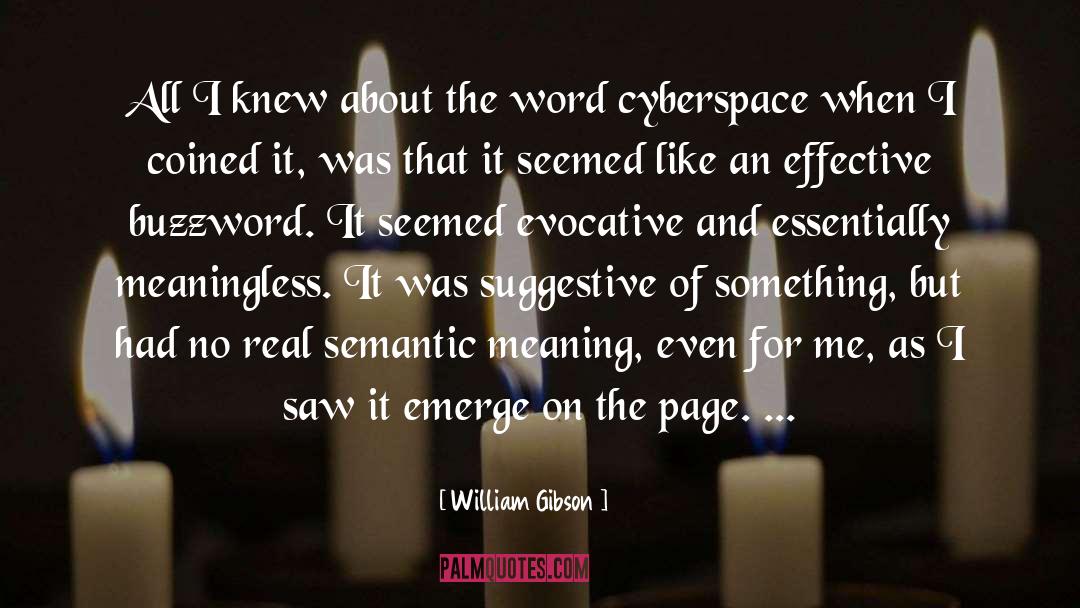
Language, for the individual consciousness, lies on the borderline between oneself and the other. The word in language is half someone else's. It becomes 'one's owns' only when the speaker populates it with his own intention, his own accent, when he appropriates the word, adapting it to his own semantic and expressive intention. Prior to this moment of appropriation, the word does not exist in a natural and impersonal language (it is not, after all, out of a dictionary that the speaker gets his words!), but rather it exists in other people's mouths, in other people's contexts, serving other people's intentions: it is from there that one must take the word, and make it one's own. ~ Mikhail Bakhtin
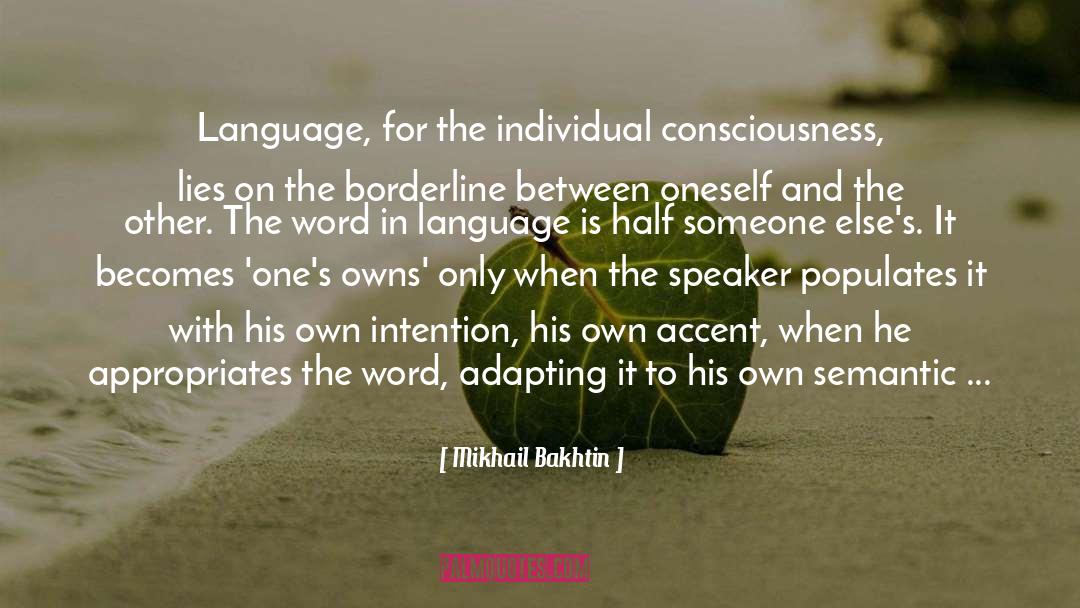
Rasa has two primary meanings: 'feeling' and 'meaning'. As 'feeling' it is one of the traditional Javanese five senses - seeing, hearing, talking, smelling and feeling, and it includes within itself three aspects of "feeling" that our view of the 5 senses separates: taste of tongue, touch on the body, and emotional 'feeling' within the 'heart' like sadness and happiness. The taste of a banana is its rasa; a hunch is a rasa; a pain is a rasa; and so is the passion. As 'meaning', rasa is applied to words in a letter, in a poem, or even in common speech to indicate the between-the-lines type of indirection and allusive suggestion that is so important in Javanese communication and social intercourse. And it is given the same application to behavioral acts generally: to indicate the implicit import, the connotative 'feeling' of dance movements, polite gestures, and so forth. But int his second, semantic sense, it also means 'ultimate significance' - the deepest meaning at which one arrives by dint of mystical effort and whose clarification resolves all the ambiguities of mundane existence(...)
(The interpretation of cultures) ~ Geertz Clifford
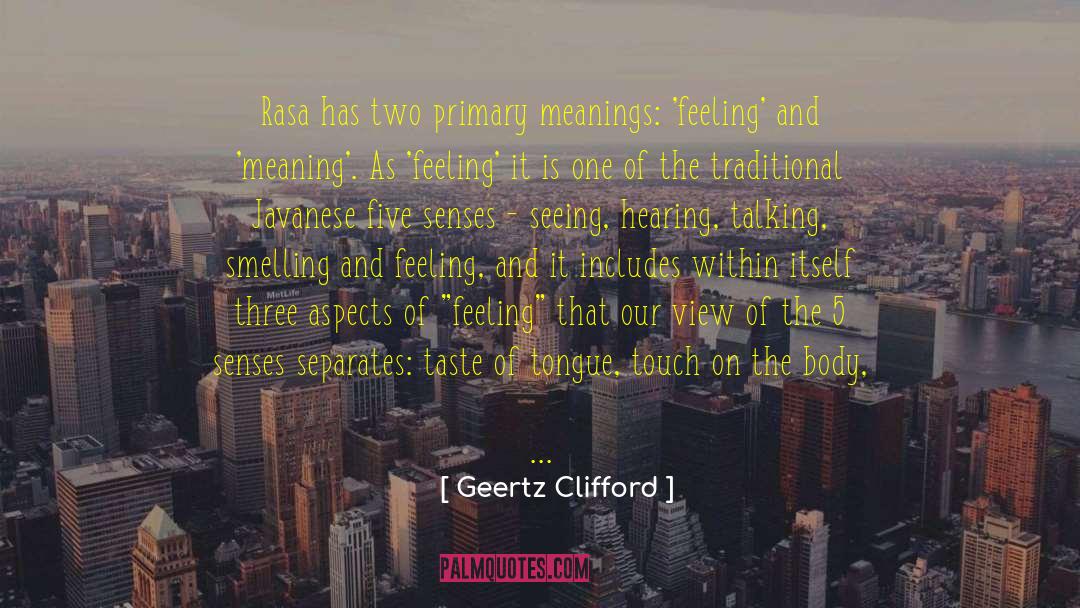
It is not wrong to think that the traditional buying of a product has been replaced with an unwritten contract of shared values between a business and its customers. ~ David Amerland
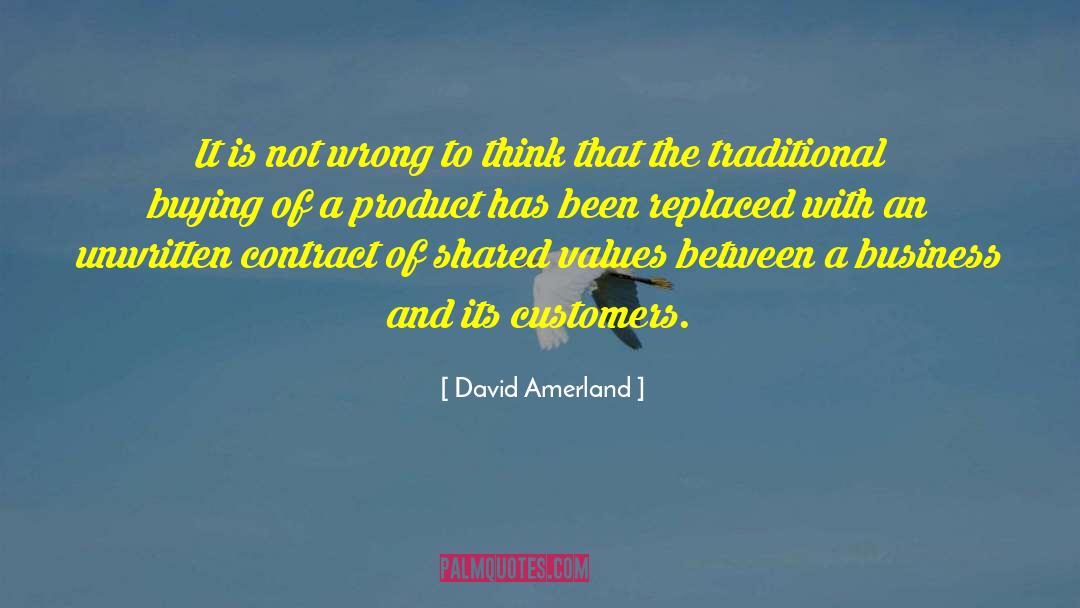
'Constitutional' is just a real pip of a word. Positively rolls off the tongue. In fact, it's downright fun to say. 'Con-stit-too-shun-al.' It's the verbal equivalent of skipping down the street with an ice cream cone in your hand. It's like a semantic bag of Lays potato chips. You simply can't just say it once. ~ Paul Feig
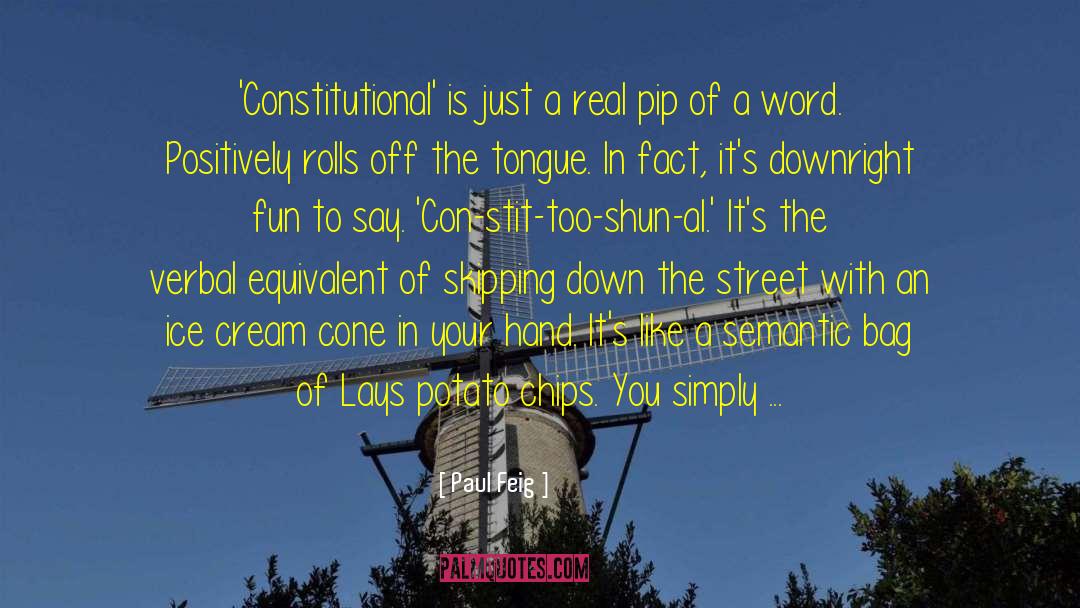
Our rulers, who rule our symbols, and so rule a symbolic class of life, impose their own infantilism on our instituitions, educational methods, and doctrines. This leads to maladjustment of the incoming generations which, being born into, are forced to develop under the un-natural (for man) semantic conditions imposed on them. In turn, they produce leaders afflicted with the old animalistic limitations. The vicious circle is completed; it results in a general state of human un-sanity, reflected again in our instituitions. And so it goes, on and on. ~ Alfred Korzybski
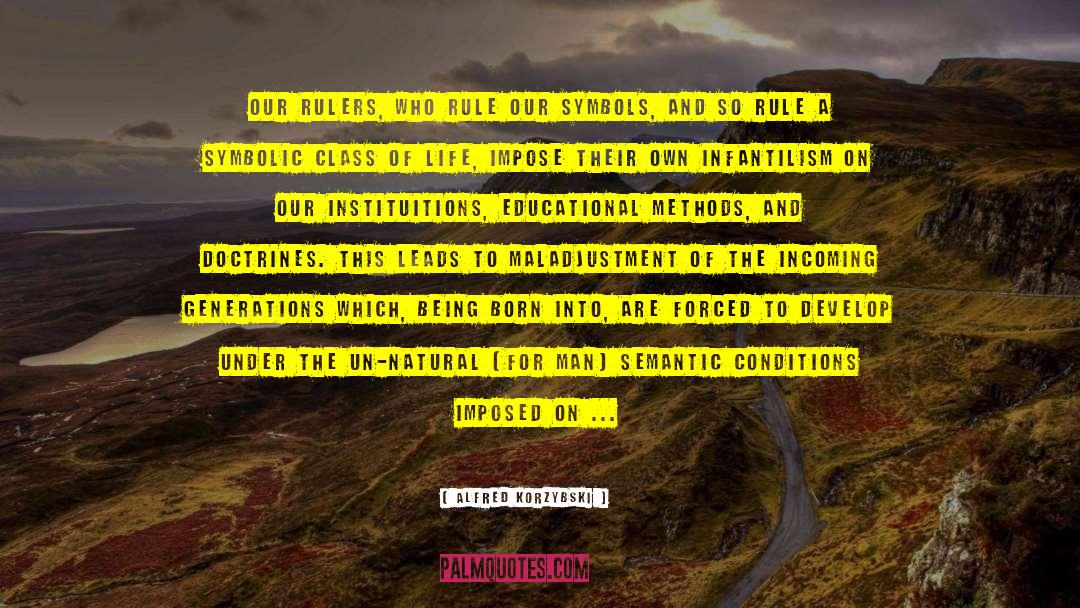
Dostoevsky's authorial activity is evident in his extension of every contending point of view to its maximal force and depth, to the outside limits of plausibility. He strives to expose and develop all the semantic possibilities embedded in a given point of view (Chernyshevsky, as we have seen, strove for the same thing in his Pearl of Creation). This Dostoevsky knew how to do with extraordinary power. And this activity, the intensifying of someone else's thought, is possible only on the basis of a dialogic relationship to that other consciousness, that other point of view. We ~ Mikhail Bakhtin
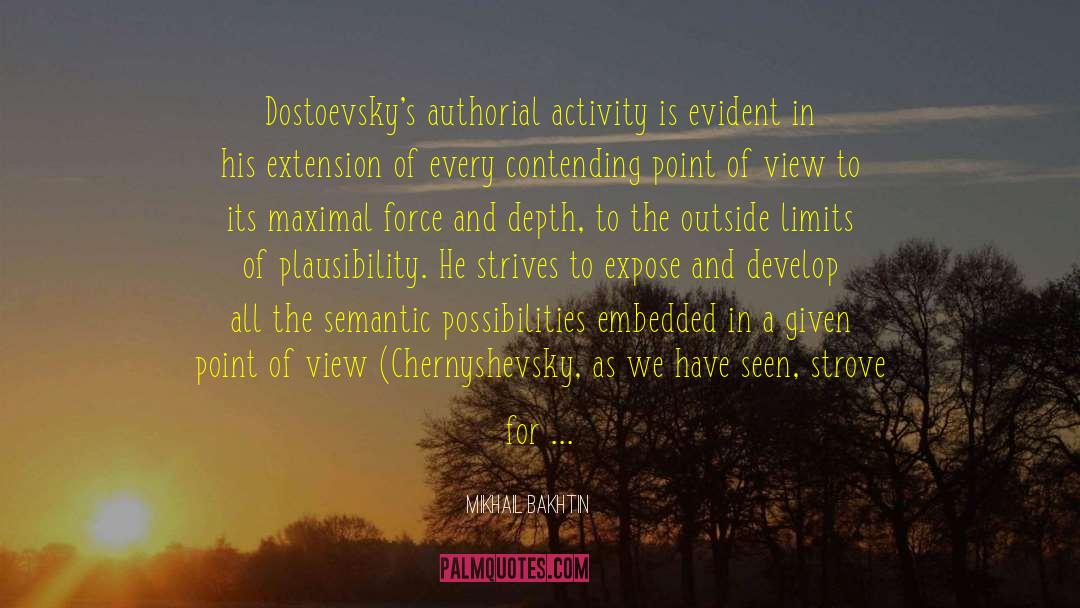
When Isaac Newton embarked on his great program, he encountered a fundamental lack of definition where it was most needed. He began with a semantic sleight of hand: "I do not define time, space, place, and motion, as being well known to all," he wrote deceptively. Defining these words was his very purpose. There were no agreed standards for weights and measures. Weight and measure were themselves vague terms. Latin seemed more reliable than English, precisely because it was less worn by everyday use, but the Romans had not possessed the necessary words either. ~ James Gleick
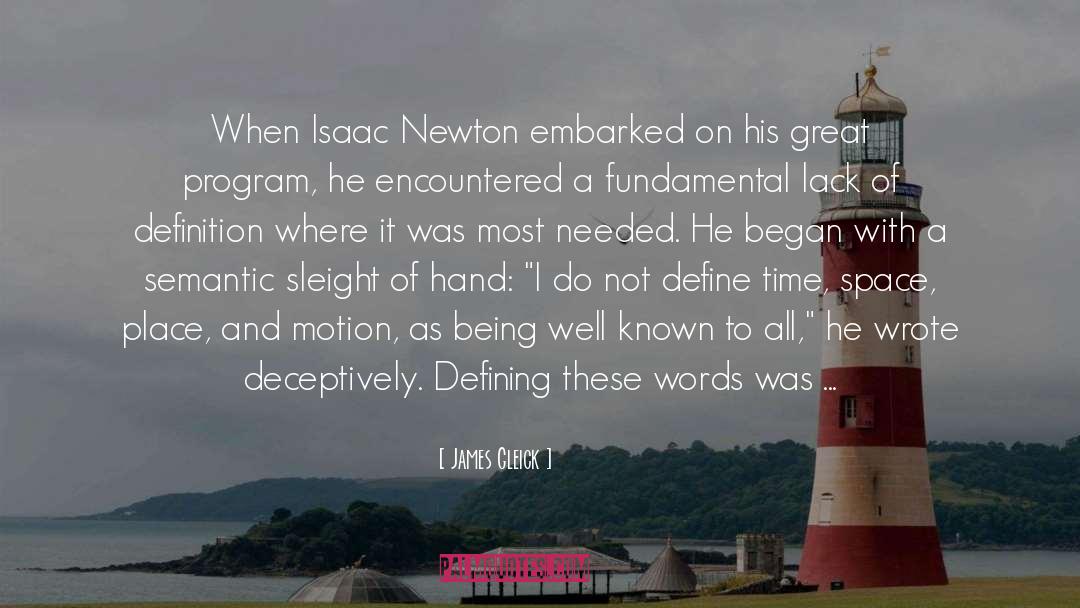
The method that is required is not one of correlation but of liberation. Even the term "method" must be reinterpreted and in fact wrenched out of its usual semantic field, for the emerging creativity in women is by no means a merely cerebral process. In order to understand the implications of this process it is necessary to grasp the fundamental fact that women have had the power of naming stolen from us. We have not been free to use our power to name ourselves, the world or God. The old naming was not the product of dialogue- a fact inadvertently admitted in the genesis story of Adam's naming the animals and the women. Women are now realizing that the universal imposing of names by men has been false because partial. That is, inadequate words have been taken as adequate. ~ Mary Daly
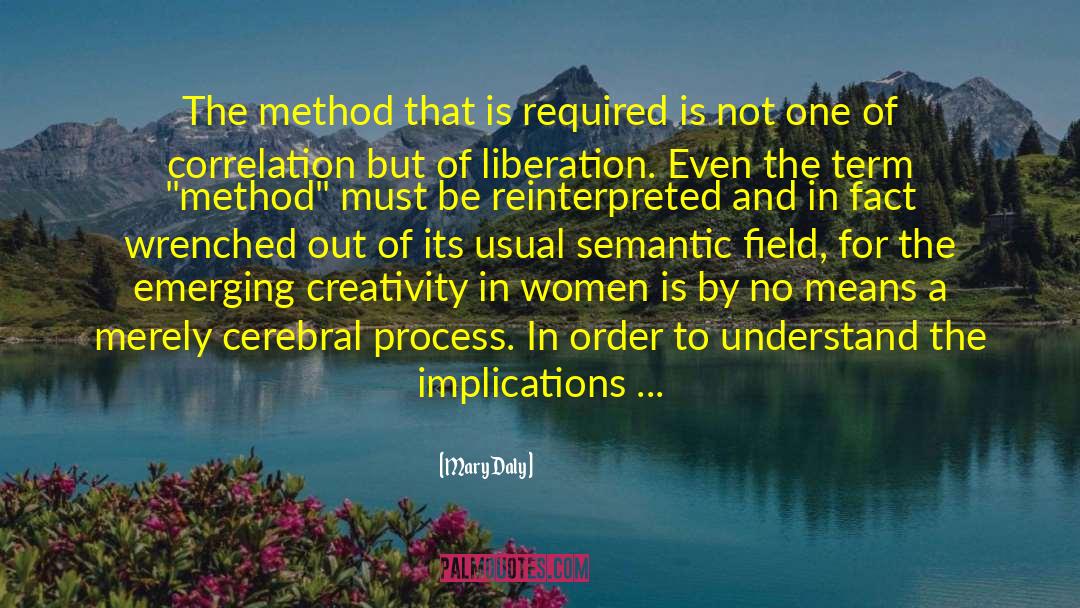
We are, all four of us, blood relatives, and we speak a kind of esoteric, family language, a sort of semantic geometry in which the shortest distance between any two points is a fullish circle. ~ J.D. Salinger
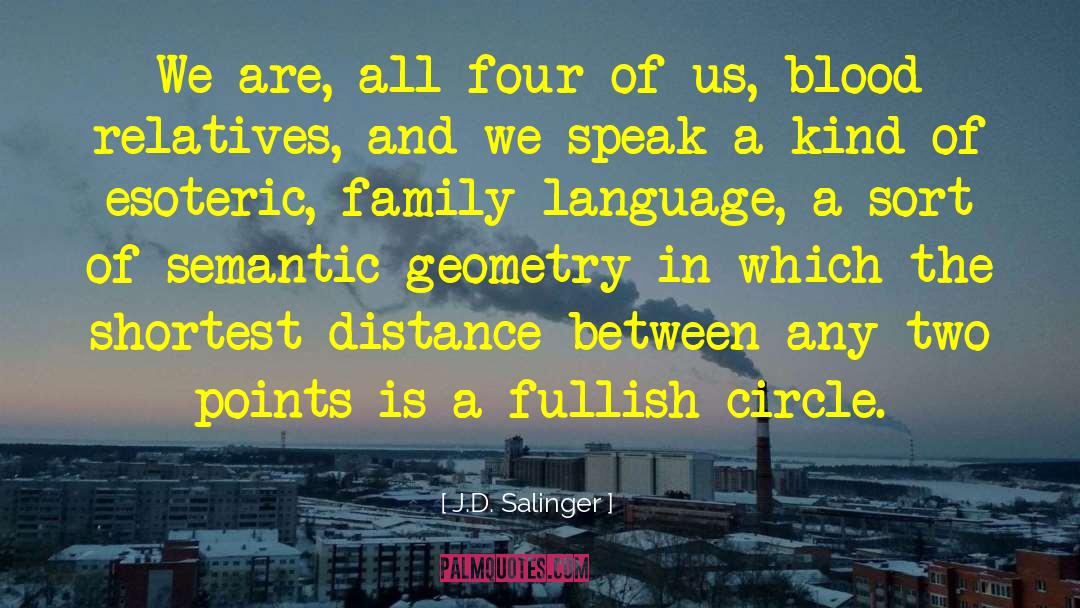
The Bluebook is an absurdity, but it endures, in fact thrives, impervious to criticism and ridicule. The judiciary navigates the sea of modernity, slowed, thrown of course, by the barnacles of legal formalism (semantic escapes from reality, impoverished sense of context, fear of math and science, insensitivity to language and culture, mangling of history, superfluous footnotes, verbosity, excessive quotation, reader-unfriendly prose, exaggeration, bluster, obsession with citation form) – an accumulation of many centuries, yet constantly augmented. There is little desire to give the hull a good scraping. There is fear that the naked hull would be unslightly, even unseaworthy. The fear is overblown. A week after all the copies of the Bluebook were burned, their absence would not be noticed. ~ Richard A. Posner
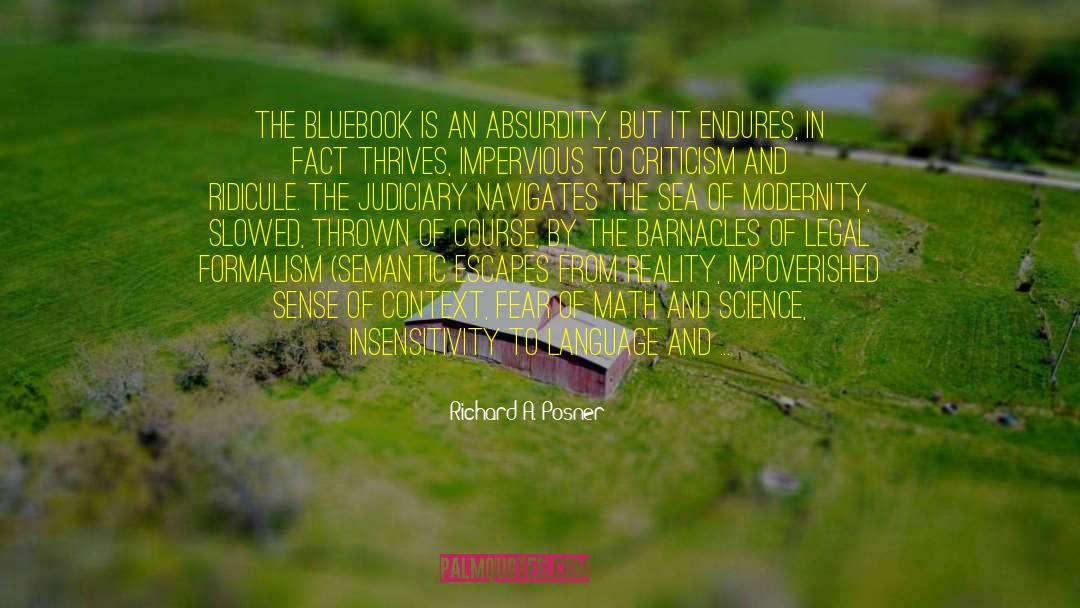
In the philosophy of mind - as, indeed, in more important matters - [the twentieth century] has been a less than fully satisfactory century. We pretty much wasted the first half, so it seems to me, in a neurotic and obsessive preoccupation with refuting Cartesian skepticism about other minds. In the event, it didn't matter that the skeptics weren't refuted since there turned out not to be any. The only philosophers who really were doubtful about the existence of other minds were relentless anti-Cartesians like Wittgenstein, Dewey, Ryle, Quine and Rorty, and they were equally doubtful about the existence of their own. What we got for our efforts was mostly decades of behaviorism and the persistent bad habit of trying to run epistemological or semantic arguments for metaphysical conclusions. The end of this, I fear, is still not with us. ~ Jerry A. Fodor
